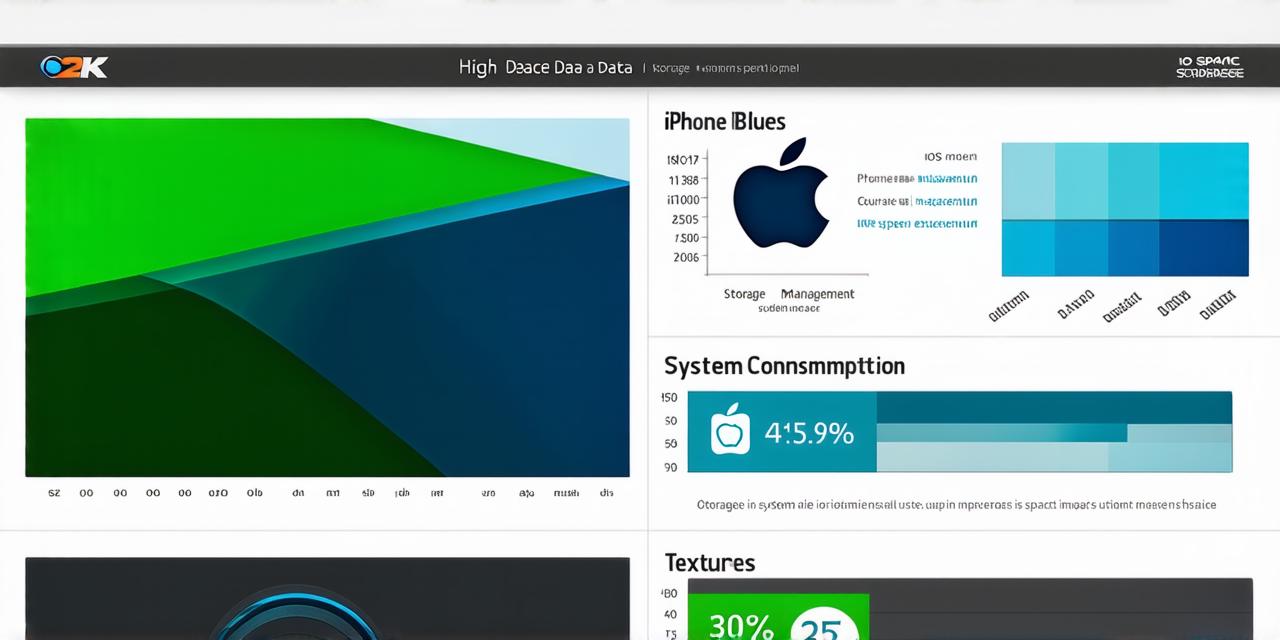Why Does iOS Data Take Up So Much Space?

There are several factors that contribute to the large amount of storage space required by iOS apps. The first is the use of encrypted data. Encryption is an important security measure that ensures that sensitive information, such as passwords and personal data, is protected from unauthorized access. However, encrypting data also requires additional storage space.
Another factor that contributes to the large amount of storage space required by iOS apps is the use of keychain services. Keychain services allow users to store important information, such as login credentials, securely on their device. This information can only be accessed with the user’s permission and is protected by encryption. However, storing this data requires additional storage space.
In addition to encrypted data and keychain services, iOS apps also use a variety of other features that require additional storage space. For example, many apps store large amounts of media, such as images and videos, which can take up significant amounts of storage space on a user’s device.
Optimizing the Use of Storage Space in Your iOS App
Now that we have a better understanding of why iOS data takes up so much space, let’s explore some tips for optimizing the use of storage space in your iOS app.
-
Use cloud-based services: One of the best ways to reduce the amount of storage space required by your iOS app is to use cloud-based services for storing sensitive information and media files. This allows users to access their data from anywhere, without having to carry around large amounts of files on their device.
-
Minimize the use of encrypted data: While encryption is an important security measure, it can also be a significant contributor to the amount of storage space required by your app. Try to minimize the use of encrypted data wherever possible and consider using other security measures, such as two-factor authentication, instead.
-
Optimize media files: If your app uses images or videos, make sure to optimize them for the web to reduce their file size without sacrificing quality. This will help to free up additional storage space on a user’s device.
-
Use compression algorithms: Compression algorithms can be used to compress data and reduce its file size without compromising its integrity. Consider using compression algorithms for storing and transmitting large amounts of data, such as documents or media files.
-
Use caching: Caching is a technique that allows frequently accessed data to be stored in memory or on the device’s hard drive, reducing the need to access the data from disk. This can significantly improve the performance of your app and reduce the amount of storage space required.
-
Limit the use of unnecessary features: It is important to only include features in your app that are essential for its functionality. Including features that are not necessary can increase the storage space requirements of your app and negatively impact its performance.
-
Regularly clean up data: Make sure to regularly clean up data in your app that is no longer needed. This will help to reduce the amount of storage space required by your app over time.
Summary
In conclusion, iOS apps require a significant amount of storage space due to the use of encrypted data, keychain services, and other features that require additional space. However, by implementing the tips outlined in this article, you can optimize the use of storage space in your iOS app and ensure that it runs smoothly and efficiently on your users’ devices. Remember to always prioritize security, but also be mindful of the impact on storage space when implementing new features or security measures. With careful planning and optimization, you can create an iOS app that provides a great user experience while minimizing its impact on device storage space.

